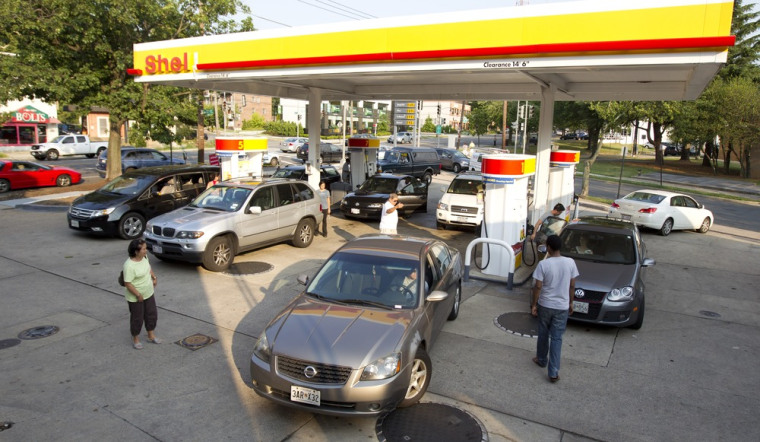President Obama recently
reminded Congress that the nation's Highway Trust Fund, which finances nearly all federally-supported transportation infrastructure in the United States, will run out of money entirely this summer unless Congress acts. Even some congressional Republicans concede the looming deadline represents a "
crisis."
There are
competing proposals to address the problem, but as msnbc's Suzy Khimm
reported yesterday, one unexpected solution was unveiled yesterday.
Together with Sen. Chris Murphy, a Connecticut Democrat, [Republican Sen. Bob Corker of Tennessee] unveiled a proposal on Wednesday to hike the federal gas tax by 12 cents over the next two years, raising it by six cents each year. It would then index the gas tax to inflation going forward to close a funding shortfall that's estimated to grow to $160 billion over the next decade. The Murphy-Corker plan is the first bipartisan proposal to the hobbled Highway Trust Fund -- and a rare Republican endorsement of higher taxes. The plan would permanently fix what Corker describes as "one of the largest budgeting failures in the federal government."
As a policy matter, this sounds quite sensible. As we
discussed last week, the Highway Trust Fund is generally supposed to be financed by a federal gas tax, which hasn't been raised in over two decades. Since Republicans won't allow an increase, transportation financing has become far more challenging.
Indeed, because GOP lawmakers have refused to even consider raising the federal gas tax, federal transportation projects will face impossible hurdles for many years to come. Murphy and Corker acknowledged yesterday that the purchasing power of the gas tax "is approximately 63% of what it was in 1993, and continues to decline."
So, as of yesterday, a bipartisan proposal is on the table that would address a serious economic problem in the short and long term. Problem solved? Not quite.
For one thing, the right is already screaming bloody murder. Republicans may be divided, but there's one unifying belief that nearly every GOP official embraces: taxes should never go up on anyone, by any amount, at any time, for any reason. The Murphy-Corker proposal would struggle to overcome a Republican filibuster in the Senate and likely stands no chance at all in GOP-led House.
For another, Corker may be the first Republican lawmaker in recent memory to endorse an increase to a federal tax -- in an election year, no less -- but his support comes at a surprise. The conservative Tennessee senator will support a sensible tax increase in this case, in exchange for more tax cuts elsewhere. From Suzy Khimm's
report:
...Corker's support for a higher gas tax also comes with some strings attached: The plan requires tax cuts that are equivalent to the amount that the gas tax is raised. It proposes to do so by permanently extending tax breaks that would disproportionately benefit large corporations and wealthy individuals, though the senators say they'd also consider other bipartisan proposals to cut taxes by the same amount. Murphy and Corker want to attach a gas tax hike to a group of tax breaks known as "extenders" -- another chronically expiring policy that Congress has been forced to relitigate every few years. While there's broad bipartisan support for many of the giveaways -- which include a R&D tax credit -- Democratic leaders have opposed House Republicans' push to make them permanent without paying for them as part of a broad tax overhaul.
Those are some fairly serious strings Corker has attached. He won't just endorse a higher federal gas tax because it's a good idea; he'll only back the measure if Democrats approve another corporate tax break that Republicans have no intention of paying for.
The result is a bipartisan breakthrough of sorts on addressing the Highway Trust Fund "crisis," which will very likely annoy policymakers in both parties.
That said, Congress will have to do something before the Fund's coffers run dry. In fact, a variety of transportation projects nationwide have already been postponed, with state and local officials unwilling to start construction while uncertainty hangs over the federal process.
If the Murphy-Corker plan isn't Congress' preferred solution, something else will have to be.
